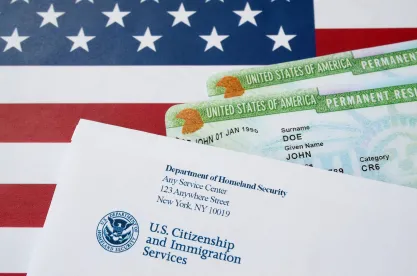On March 27, 2023, U.S. Citizenship and Immigration Services (USCIS) announced that the agency had received enough electronic registrations to reach the fiscal year (FY) 2024 annual limit. The current year saw 780,884 registrations, up 61 percent from 483,927 last year, which was a 57 percent jump from the previous year. The chart below (recreated from a USCIS Public Engagement Division April 28, 2023, announcement) shows registration and selection numbers for fiscal years 2021–2024 (as of April 24, 2023).
| Cap Fiscal Year | Total Registrations | Eligible Registrations | Eligible Registrations for Beneficiaries With No Other Eligible Registrations | Eligible Registrations for Beneficiaries With Multiple Eligible Registrations | Selections |
| 2021 | 274,237 | 269,424 | 241,299 | 28,125 | 124,415 |
| 2022 | 308,613 | 301,447 | 211,304 | 90,143 | 131,924 |
| 2023 | 483,927 | 474,421 | 309,241 | 165,180 | 127,600 |
| 2024 | 780,884 | 758,994 | 350,103 | 408,891 | 110,791 |
These numbers indicate that the number of registrations for the H-1B lottery soared overall. Upon investigation, USCIS found that the number of registrations for beneficiaries with multiple eligible registrations had soared. This disparity in data may suggest that individuals and companies collaborated to gain an advantage by submitting multiple registrations on behalf of the same beneficiary with the aim of increasing the chances of selection.
An investigation conducted by USCIS identified a few, specific companies, which the agency has declined to name, as responsible for the potential illegitimacy of these numbers, noting that nearly 100,000 registrants were submitted with multiple petitioning employers, totaling in excess of 400,000 registrations—nearly half of the FY 2024 numbers. The findings were presented in a notice to employers viewed by a prominent news outlet and released on April 28, 2023.
What Does This Mean?
When registering for the H-1B cap, petitioning employers are required to attest, under penalty of perjury, among other things, that “the registrant, or the organization on whose behalf the registration(s) is being submitted, has not worked with, or agreed to work with, another registrant, petitioner, agent, or other individual or entity to submit a registration to unfairly increase chances of selection for the beneficiary or beneficiaries in this submission.”
Notwithstanding the above, there is no technical prohibition on a foreign worker having multiple companies submit a registration on his or her behalf, so long as it is predicated on a legitimate job offer that will be brought to fruition if selected. Nevertheless, USCIS views the actions of these companies as circumnavigating the lottery system by design, with the express purpose of inflating numbers. This is dissimilar from the rare instances of an applicant having more than one legitimate employment option.
What Happens Next?
In the short term, USCIS has announced measures to combat fraud through extensive investigations and referring individuals or entities that submitted false attestations to federal law enforcement agencies for potential criminal prosecution. USCIS has confirmed its intent to disqualify registrants, including those already selected, if they have engaged in fraud to increase their chances of selection. USCIS also confirmed that the agency may deny a petition, or revoke an approval if it finds that the registration contained a false attestation.
Key Takeaways
With USCIS committed to legitimizing the FY 2024 H-1B registration numbers, the door to additional lottery selections is now ajar.
In the long term, USCIS has proposed an H-1B modernization rule, which, in relevant part, would bolster the H-1B registration process by disincentivizing misuse and fraud in the H-1B registration system. The bulk of the proposal would increase the H-1B quota registration fee to $215—a change likely to be in effect by next year’s lottery. It has been contemplated that the current fee of $10 does not sufficiently disincentivize duplicate applications.
Ogletree Deakins’ Immigration Practice Group will continue to monitor developments with respect to these and other policy changes and will post updates on the Immigration blog as additional information becomes available.




 />i
/>i

